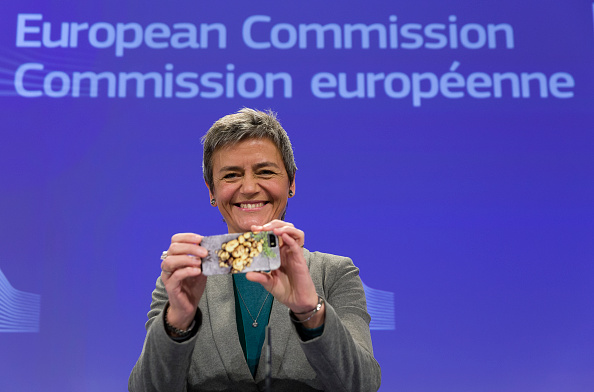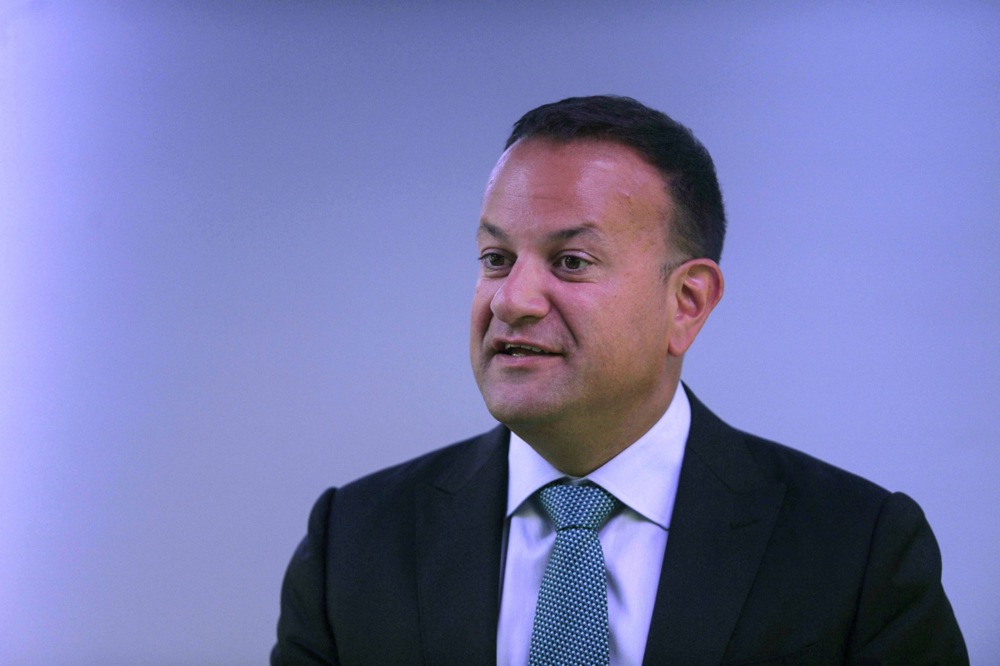Uniquely, Northern Ireland has full access to both the EU and UK market but its economy has still struggled to take advantage, economists and civil society leaders told Brussels Signal.
Northern Irish GDP grew by just 0.6 per cent in 2023, according to professional services multinational PwC, which predicted it to grow by 0.8 per cent in 2024. It said that would only be if Bank of England interest rates come down.
With negotiations to form a new government executive faltering, political instability is regarded as among the reasons for such sluggish growth.
Emma DeSouza, Belfast-based founder of the Civic Initiative, told Brussels Signal that behind Northern Ireland’s “lost opportunities” for growth was “politics, politics, politics”.
“The political instability has a chilling effect on investment for sure,” she said.
Although it is the only jurisdiction in the world able to trade goods freely with both the UK and EU, Northern Ireland has lacked a government for one-third of the past 25 years – including from late 2022 to now.
Matters there are now reaching a head, after the UK’s Northern Ireland Secretary Chris Heaton-Harris on January 23 gave the two largest parties there a February 8 deadline to resurrect a power-sharing executive.
Democratic Unionist Party leader Jeffrey Donaldson then said on January 24 he had received “threats” from his party’s hardliners over re-joining an executive with Sinn Féin while checks remained on goods from Great Britain entering Northern Ireland.
The window of opportunity may be closing. A deeper EU-UK trading relationship, including under a possible Sir Kier Starmer-led Labour government, would erode Northern Ireland’s current competitive advantage.
It seemed different a few years ago. “Actually, Northern Ireland has got a great deal,” then-prime minister Boris Johnson told a group of Northern Irish exporters in Belfast in November 2019.
“You keep free movement, you keep access to the single market and, as it says in the deal, unfettered access to the UK,” he said.
Yet foreign direct investment has largely stayed away, despite a 2023 visit to Belfast by US President Joe Biden, followed by a delegation of 50 US chief executives in October led by US Special Envoy to Northern Ireland Joe Kennedy III.
No more substantial US investment in the Northern Ireland economy followed than a $50 million commitment from the New York State pension fund.
Alan Bridle, Belfast-based economist at the Bank of Ireland (UK), said local businesses and foreign direct investment firms that might potentially benefit from the country’s “dual access” may “be reluctant to make significant investment until there is greater clarity and certainty that these new trading arrangements are sustainable and permanent”.
Northern Ireland’s “post-Brexit trading arrangements are still in their infancy”, with “still some uncertainties as to a long term ‘settled’ position”, he said.
The March 2023 Windsor Framework, announced by UK Prime Minister Rishi Sunak and European Commission President Ursula von der Leyen partly to assuage Unionist concerns about the post-Brexit trading relationship, “is a process, a dynamic and not yet a final destination,” said Bridle.
There is provision for a “Stormont Brake”, allowing the Northern Irish Assembly the power to stop changes to European Union-goods regulations from applying to Northern Ireland.
A lack of government also means there are no political leaders to argue Northern Ireland’s case to would-be major investors.
Low productivity is as much a problem as politics, with Northern Ireland’s lagging the rest of the UK by 15 to 17 per cent.
The US, France, Germany and Ireland have each managed swifter productivity growth than the UK for around two decades.
Maureen O’Reilly, an economist in Belfast, said: “Sometimes it does feel as if we are in a bit of a twilight zone in terms of how we take advantage of that position so strong understanding and messaging is key.”
Graham Brownlow, an economics lecturer at Queens’ University Belfast, added: “The fundamental block is poor productivity linked to weak innovation, exports and above all management.”
Northern Ireland’s economic activity is mostly concentrated in low-productivity industries, while its relative remoteness and small size makes it harder for firms to scale.
“We are a very small, open economy with mostly very small businesses so scale and hence productivity, which is difficult given the size and sector of businesses here, [that] means our starting point is challenging,” added O’Reilly.
An increasing drain of talent to Britain and Ireland is a problem, too.
Tom Wiggins, head of the Ballymena Chamber of Commerce and Industry, said in his opinion: “Businesses are struggling to recruit and retain staff. There appears to be a shortage in our labour market.”
In theory, Northern Ireland’s trade “should benefit” from the Windsor Framework, even though it introduces some friction and new customs and regulatory costs, said Bridle.
“However, keep in mind the biggest part of the Northern Irish economy – services – is outside the Windsor Framework and not directly impacted,” he added.
The longer-term causes of Northern Ireland’s relative economic underperformance over many decades remain, he said.
These include “poor productivity, political instability, higher rates of economic inactivity, weaker levels of public and private capital investment, and public-private sector imbalances”, Bridle added.
It seems it will take more than the odd visit from a Biden, Kennedy, or even a Johnson to begin to make these problems go away.





